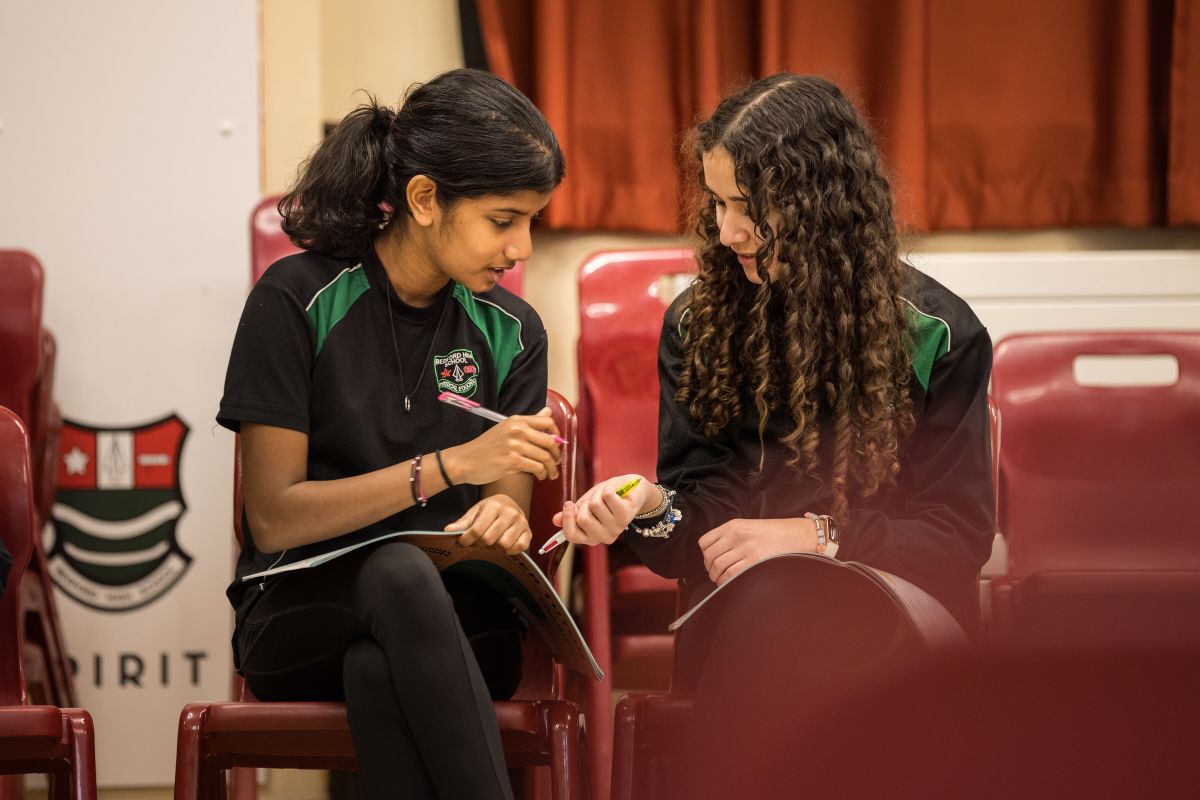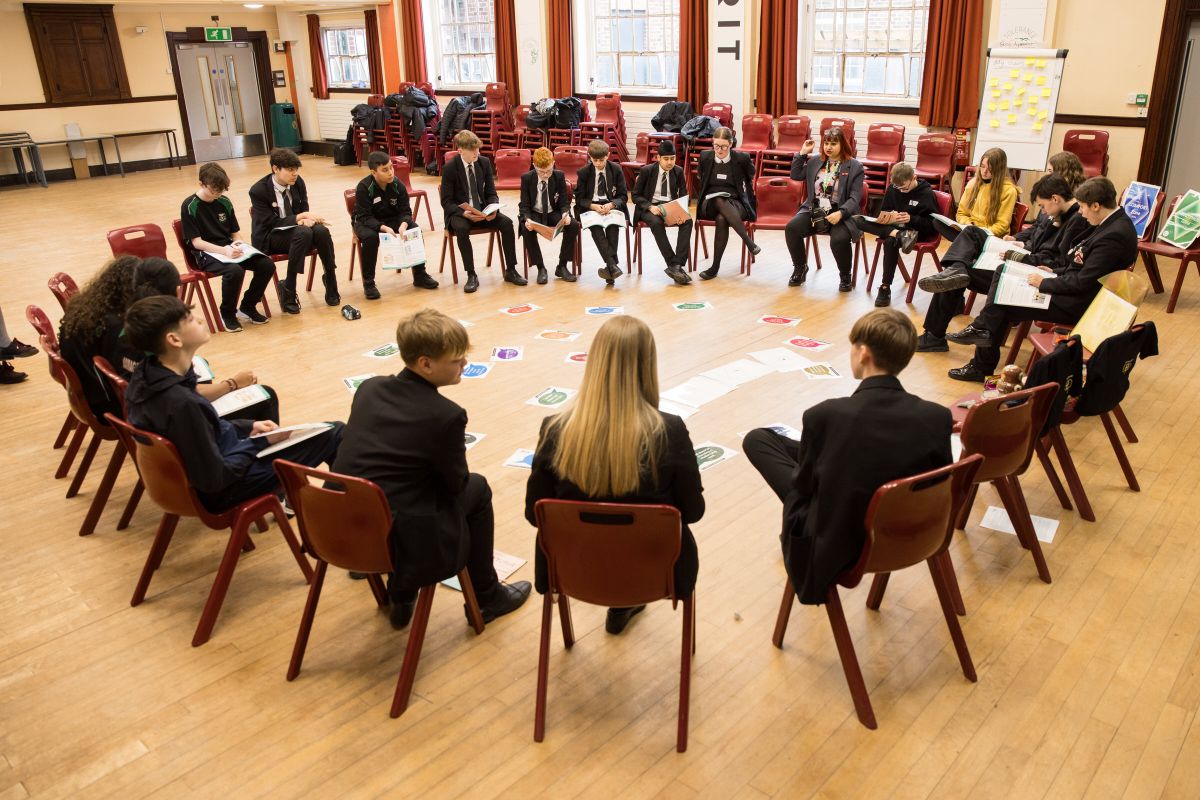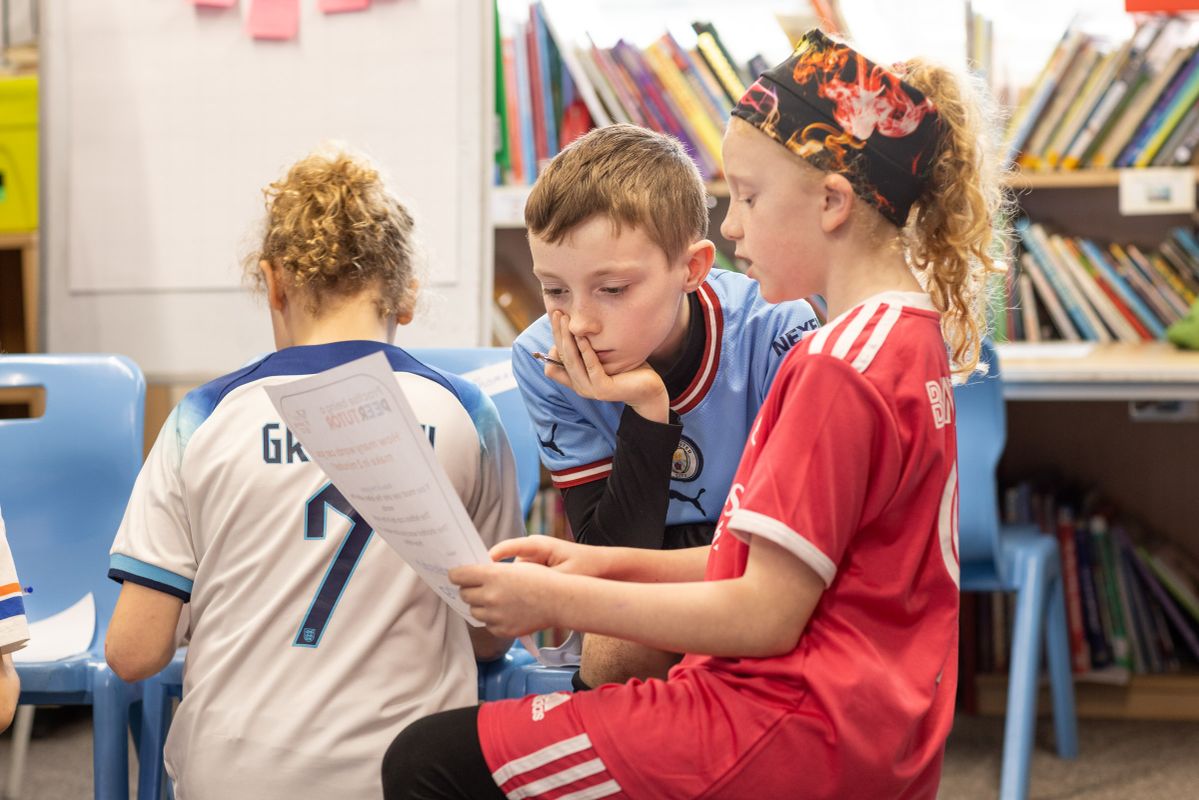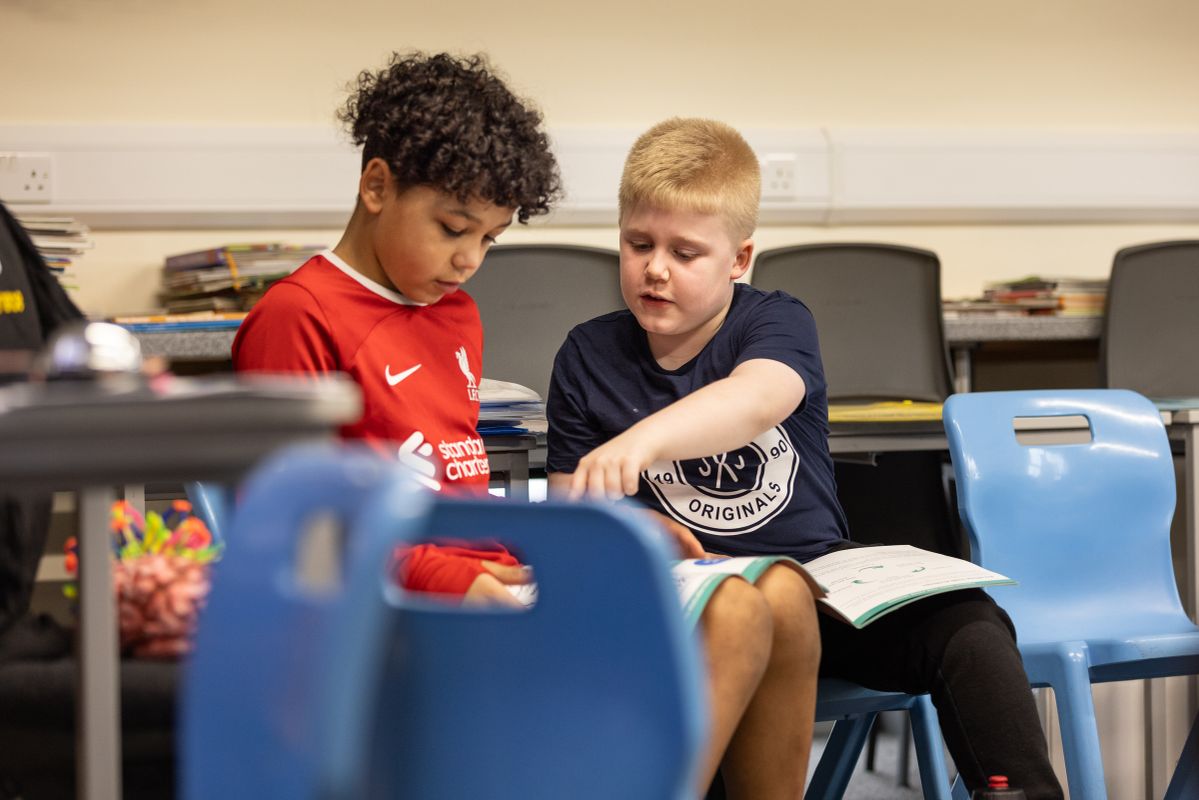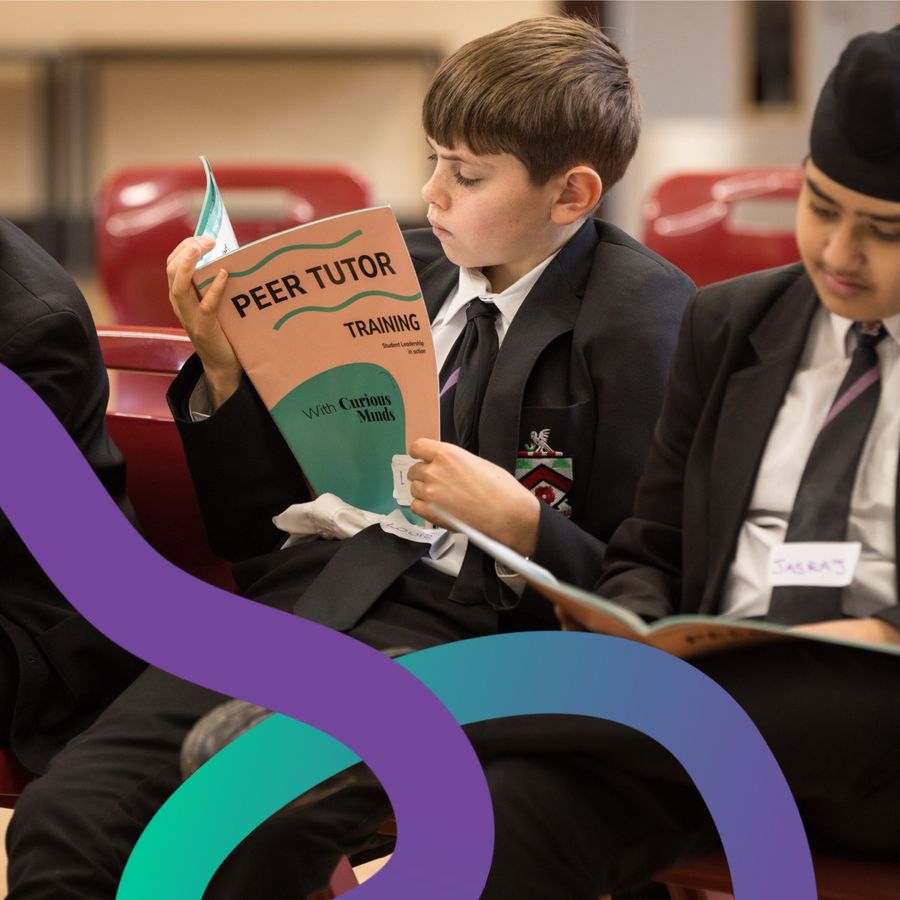
Peer Tutoring
Transforming learning through student leadership
Originally developed through the work of University of the First Age (UFA), the programme is grounded in a long-standing evidence base from both the UK and USA. The team behind it are recognised leaders in the field, with over two decades of experience, having worked with more than 750,000 young people and 7,000 adults across 50 local authorities nationwide.
What is Peer Tutoring?
The Peer Tutoring Programme gives young people the chance to share their knowledge, creativity, and skills with others. As Peer Tutors, they support the learning of their peers in one-to-one or small group sessions, using creative approaches to make learning fun and engaging.
Through the programme, young people don’t just learn how to be tutors – they also discover how learning works and how to pass on a skill in ways that inspire and motivate others. Along the way, Peer Tutors build their own confidence, resilience, and leadership skills, while helping others to achieve more, communicate better, and enjoy the process of learning together.
The Peer Tutoring model builds aspiration, confidence, motivation, and engagement in young people of all ages. It can be implemented at both primary and secondary school level, as well as supporting the transition between them. Though all types of pupils appear to benefit, there is evidence that children from disadvantaged backgrounds and low attaining pupils make the biggest gains.
Why Peer Tutoring and why now?
The impact of the recent pandemic on children and young people cannot be underestimated. Many have experienced a loss of social interaction, developed a fear of social contact and felt distanced from their close friends and peers.
As a youth-led programme, Peer Tutoring can play a powerful part in overcoming these challenges - rebuilding relationships and enhancing learning. It enables pupils to ‘give back’ and support others, whilst also developing renewed learner confidence and resilience.
Time and time again we’ve seen Peer Tutoring lead to:
- Increased attainment.
- Greater confidence and resilience.
- Improved behaviour.
- Better team working and leadership skills.
- Improved social skills, including better communication.
Many students progressed from Peer Tutoring to a whole range of other leadership roles, both within and beyond their schools.
Curious to know more?
If you're interested in exploring Peer Tutoring and whether it could be a good fit for your school, we'd love to hear from you. Feel free to reach out to our Head of Learning & Development, Teresa.
The children of St James CE Primary School experienced two of the best days training for children I have ever witnessed. It was lovely to see how their confidence grew over the two days and how at the end they felt they had been treated like 'real teachers' and were so excited to start their new role. I highly recommend this inspiring training to any school, as it clearly empowers and challenges the children in so many different ways.
Deputy Head Teacher KS2, St James CE Primary, Birmingham

